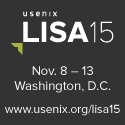31. Can a user's account be disabled on all systems in 1 hour?
This indicates a lot more about your team and the environment you run than just whether or not you can disable an account. It indicates the use of a global unified account system.
Having a single authentication database that all systems rely on is no longer a "would be nice". It is a "must have". If you think you don't need it until you are larger, you will find that you don't have time to install it when you are busy growing.
The best practice is to employ user account life-cycle management systems. With such a system user accounts are created, managed and controlled from pre-employment through life changes to termination and beyond. What if a user's name changes? What if someone rejoins the company? What if they rejoin the company and their name has changed? There are a lot of "edge cases" they must be able to handle.
For More Information
See below links for more information on this topic:
- P2 - p. 223, Chapter 8: Namespaces
- P2 - p. 899, Chapter 36: Firing System Administrators
